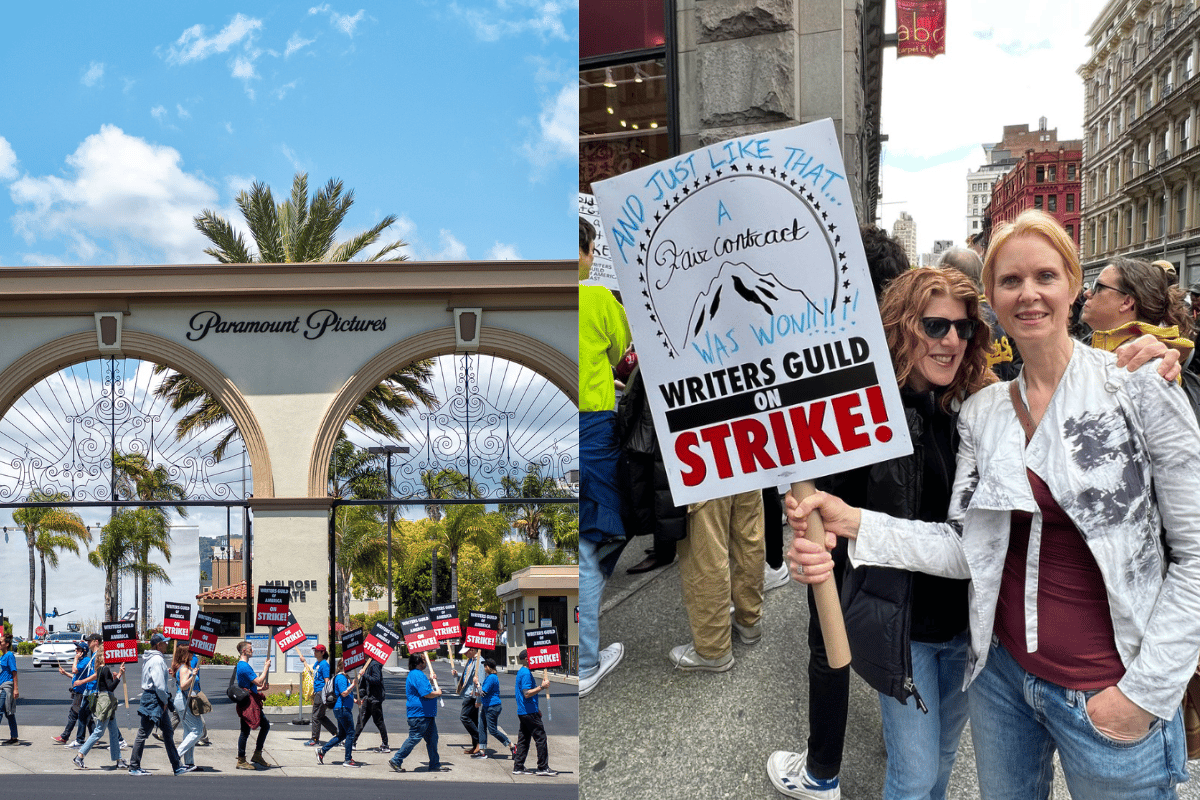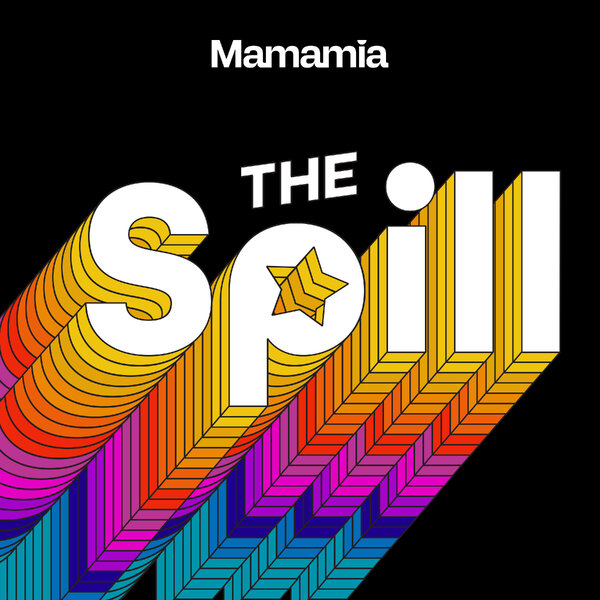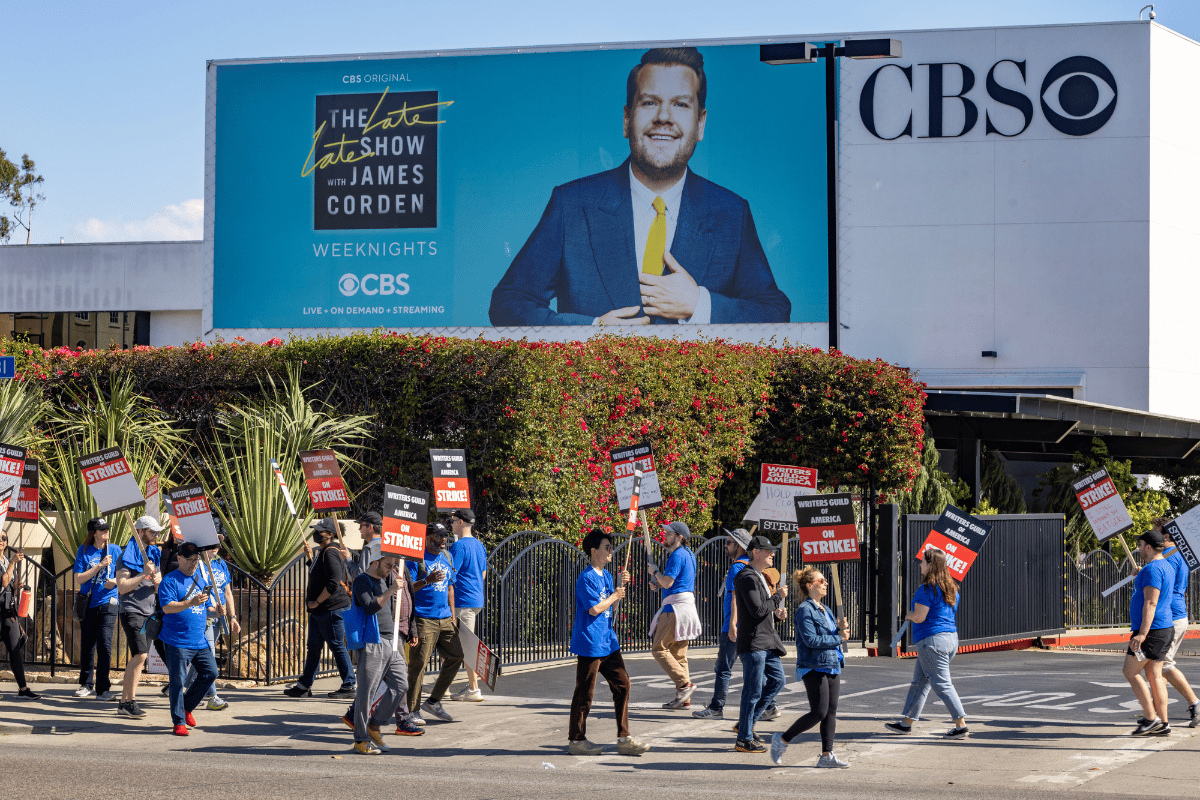
For the first time in more than 15 years, Hollywood's writers are going on strike.
It kicked off this week after the Writer's Guild of America announced that its 11,500 members would stop working. The strike comes down to a pay dispute after negotiations broke down between production companies, streaming giants and the unions.
'Why should we care?' some might be asking themselves. And fair enough.
In reality, a strike like this has ramifications for audiences too — impacting some of our favourite TV shows. In fact, we saw it 15 years ago when a similar strike occurred, which wreaked havoc on the industry and resulted in a slew of iconic TV shows being cancelled or having their seasons shortened.
And there's every chance history could repeat itself.
Watch the thousands of writers at the picket lines. Post continues below.
First a bit of background, why are TV writers striking?
TV writers are the backbone of Hollywood. No doubt about it.
Although the celebrities we see on screen are the highest-paid people in the world, the people who write their scripts, characters and plotlines are pretty much paid peanuts in comparison.


